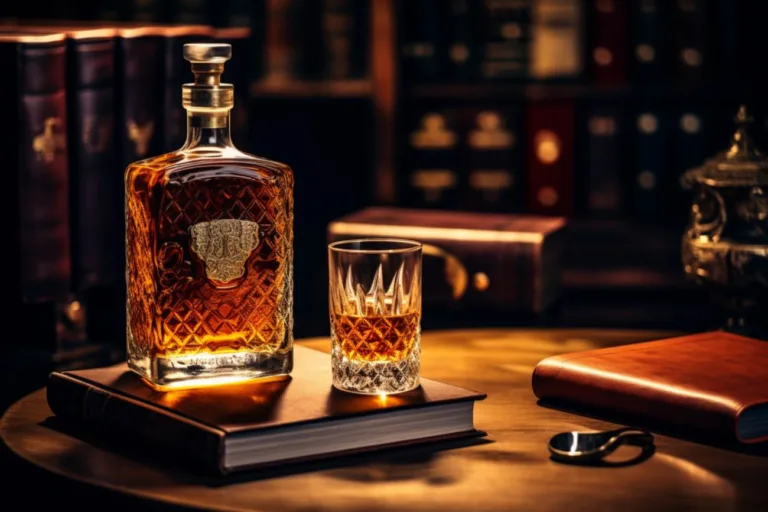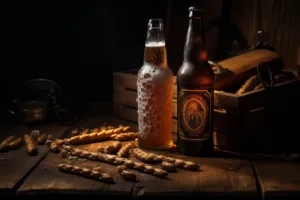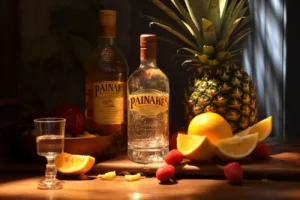Welcome to the world of Scotch whisky, a divine nectar that has enchanted connoisseurs and enthusiasts for centuries. In this article, we will delve into the rich history, production process, and the exquisite flavors that make Scotch whisky a treasure of Scotland. Whether you are a seasoned Scotch enthusiast or a newcomer to the world of spirits, join us on this journey to discover the allure of Scotch whisky.
The origins of scotch whisky
Scotch whisky, often simply referred to as Scotch, has its roots deeply embedded in the rugged landscapes of Scotland. The precise origin of this iconic spirit is shrouded in the mists of time, but it is believed to have been distilled by monks as early as the 15th century. Over the centuries, the craft of distillation was perfected, and whisky became an integral part of Scottish culture.
The scotch whisky regions
Scotland is divided into several whisky-producing regions, each with its distinct characteristics and flavors. These regions include:
- Highlands: Known for its diverse range of flavors, from fruity and floral to smoky and peaty.
- Lowlands: Producing lighter, milder whiskies with a touch of sweetness.
- Islay: Famous for its heavily peated and briny expressions, loved by those who crave bold, smoky flavors.
- Speyside: Renowned for its elegant and often fruity whiskies, with many distilleries concentrated in a small area.
- Campbeltown: A region with a rich history that produces whiskies known for their complexity and maritime influence.
The scotch whisky production process
Scotch whisky is made from three key ingredients: water, malted barley, and yeast. The production process can be summarized in the following steps:
- Malting: Barley is soaked in water, allowed to sprout, and then dried in a kiln, which halts the germination process.
- Mashing: The malted barley is ground into grist and mixed with hot water to extract sugars.
- Fermentation: Yeast is added to the sugary liquid (wort) to ferment it into alcohol, creating a crude beer known as „wash.“
- Distillation: The wash is distilled in copper pot stills or column stills to increase alcohol content and concentrate flavors.
- Maturation: The spirit is aged in oak barrels for a minimum of three years, often much longer, to develop its character and flavor profile.
- Bottling: After maturation, the whisky is filtered, diluted to the desired proof, and bottled for sale.
Exploring the flavors of scotch whisky
One of the most captivating aspects of Scotch whisky is its diverse flavor spectrum. Depending on the region, ingredients, and aging process, you can encounter a wide range of tasting notes, including:
- Rich honey and vanilla
- Peaty and smoky
- Spicy and fruity
- Floral and herbal
- Nutty and malty
Scotch whisky: a global icon
Scotch whisky has transcended its Scottish roots to become a global icon of luxury and sophistication. It is enjoyed in more than 200 countries, and its reputation for quality and craftsmanship is unrivaled. Whether sipped neat, on the rocks, or as a key ingredient in cocktails, Scotch whisky continues to be a symbol of celebration and refinement.
Frequently asked questions
What is the legal definition of Scotch whisky?
Scotch whisky must be produced in Scotland, adhere to specific regulations, and be aged in oak barrels for a minimum of three years. It must also have a minimum alcohol content of 40% ABV (alcohol by volume).
What’s the difference between single malt and blended Scotch whisky?
Single malt Scotch whisky is made from 100% malted barley and distilled at a single distillery. Blended Scotch whisky combines malt whisky from multiple distilleries with grain whisky. Single malts often have more distinct flavors, while blends aim for balance and consistency.
Can Scotch whisky be enjoyed in cocktails?
Absolutely! Scotch whisky is a versatile spirit that can be used in a variety of cocktails, from classics like the Whisky Sour and Rob Roy to modern creations. Its complex flavors can add depth and character to mixed drinks.
What is the significance of the age statement on Scotch whisky bottles?
The age statement indicates the minimum number of years the whisky has been aged in oak barrels. It provides a clue about the whisky’s flavor and complexity, with longer aging often resulting in richer and more refined profiles.
Is Scotch whisky a suitable gift for special occasions?
Yes, Scotch whisky is a cherished gift for special occasions. Its elegance and history make it a meaningful present for celebrations, milestones, or simply as a gesture of appreciation.
Viz také:






